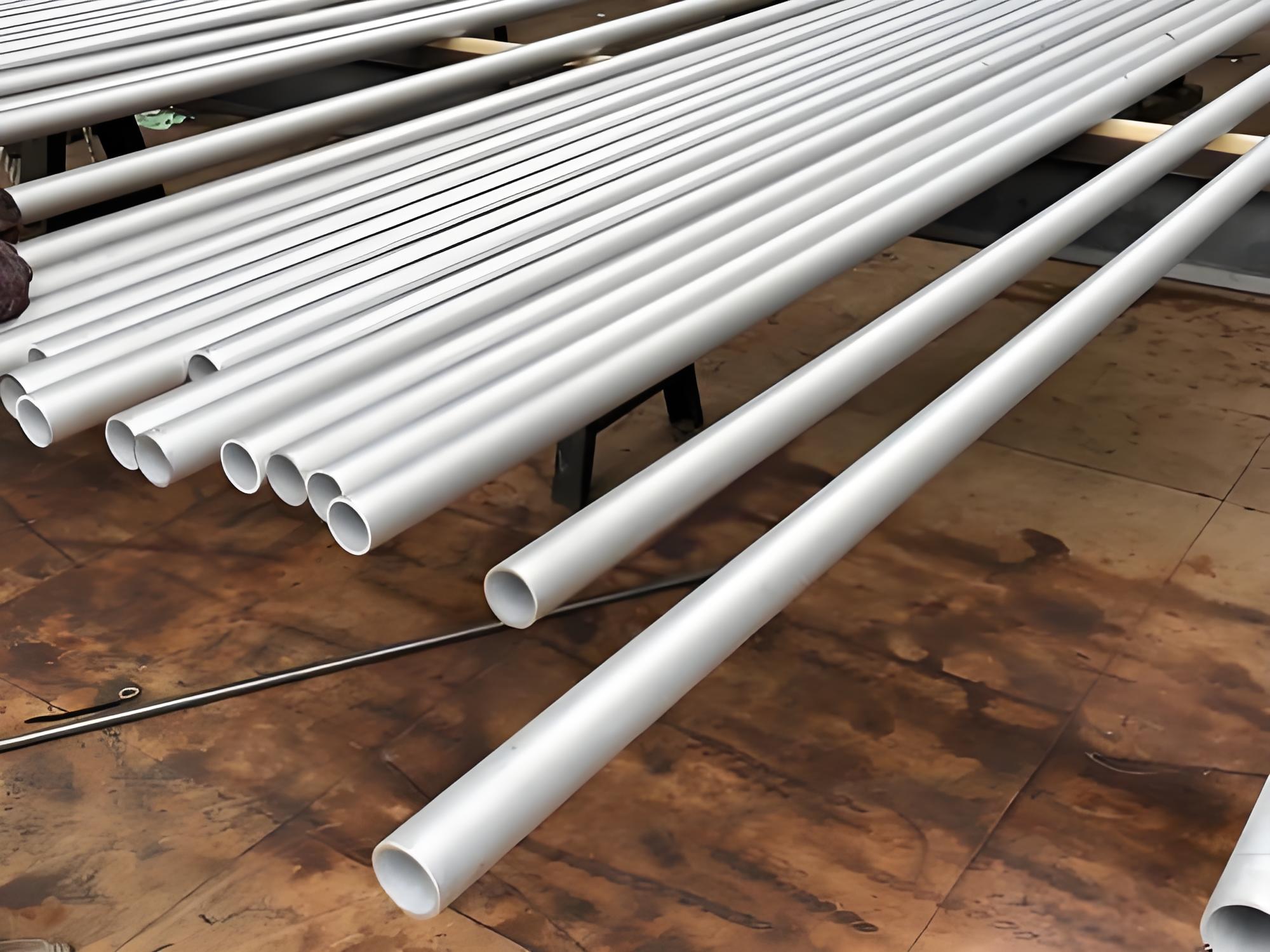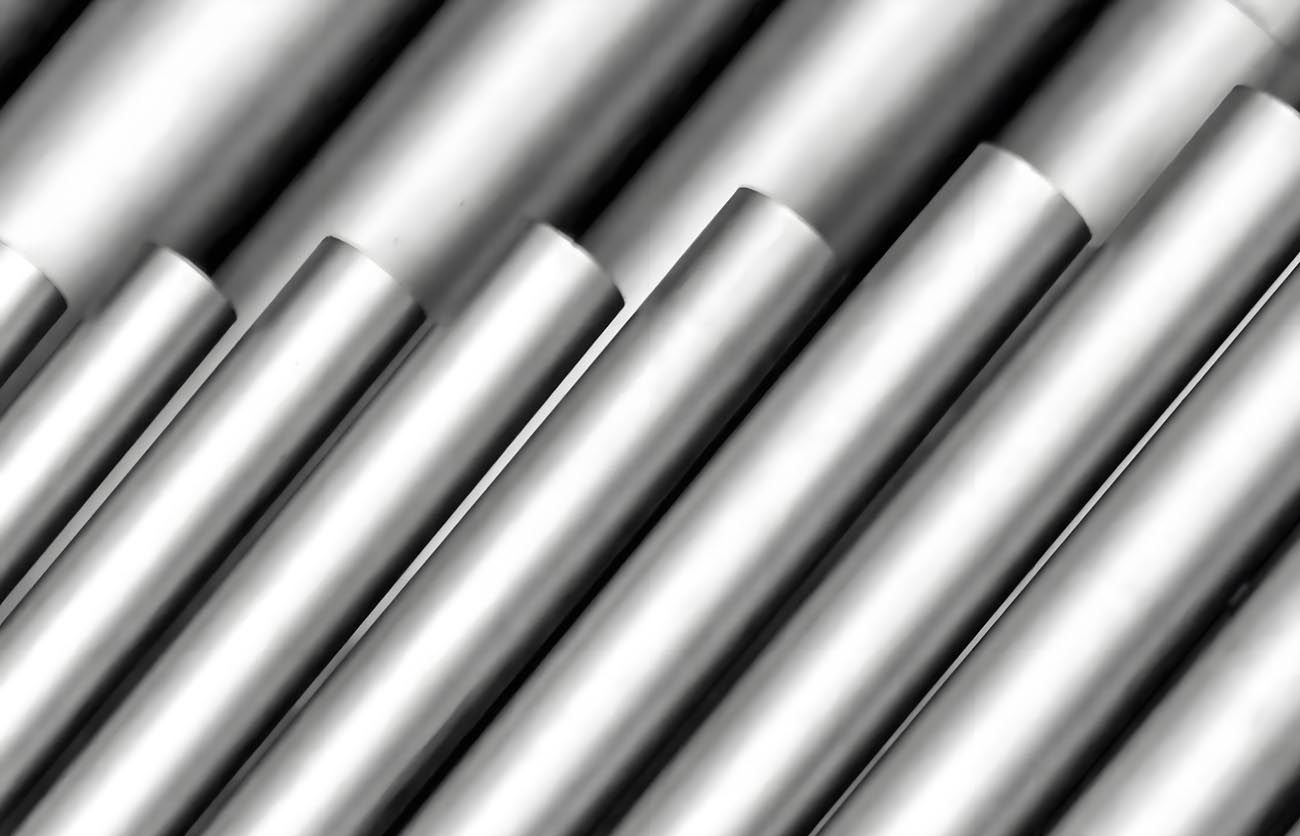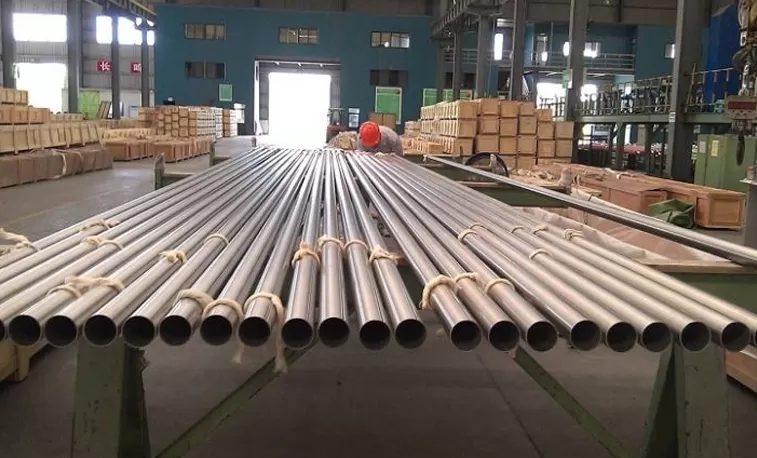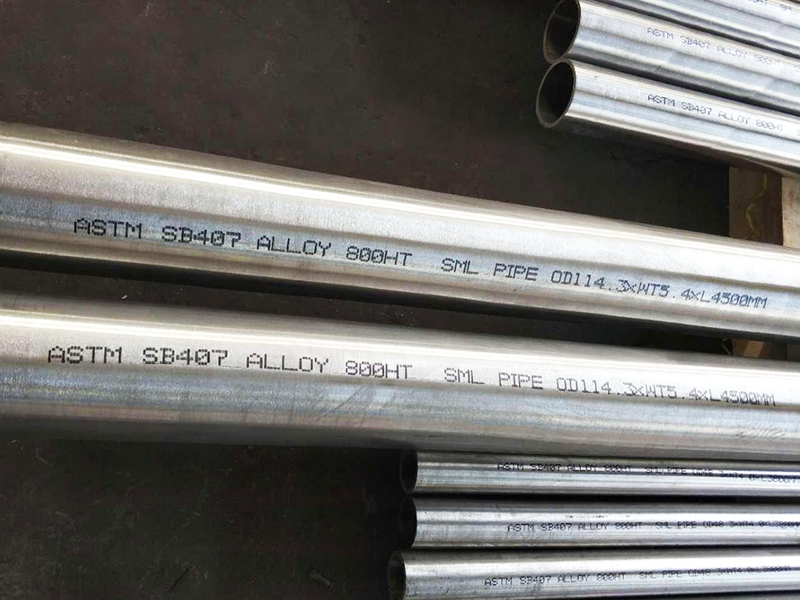Nickel Alloy 825 Steel Tube (UNS N08825 / WNR 2.4858)

Nickel Alloy 825 Steel Tube (UNS N08825 / WNR 2.4858)
Nickel Alloy 825, also known as Incoloy 825, is a nickel-iron-chromium alloy with additions of molybdenum, copper, and titanium. It is known for its excellent resistance to both reducing and oxidizing acids, stress-corrosion cracking, and pitting in chloride-containing environments, making it a popular choice for a range of industries.
Chemical Composition
The chemical composition of Nickel Alloy 825 is as follows:
| Element | Composition (wt%) |
|---|---|
| Nickel (Ni) | 38.0–46.0 |
| Chromium (Cr) | 19.5–23.5 |
| Iron (Fe) | 22.0 min |
| Molybdenum (Mo) | 2.5–3.5 |
| Copper (Cu) | 1.5–3.0 |
| Titanium (Ti) | 0.6–1.2 |
| Manganese (Mn) | 1.0 max |
| Silicon (Si) | 0.5 max |
| Carbon (C) | 0.05 max |
| Sulfur (S) | 0.03 max |
| Aluminum (Al) | 0.2 max |
Mechanical Properties
Nickel Alloy 825 exhibits robust mechanical properties, making it suitable for high-stress environments. Typical mechanical properties include:
- Tensile Strength: 585 MPa (85 ksi) min
- Yield Strength (0.2% offset): 240 MPa (35 ksi) min
- Elongation: 30% min
- Hardness: 150-200 HB
Physical Properties
- Density: 8.14 g/cm³ (0.294 lb/in³)
- Melting Range: 1370-1400°C (2500-2550°F)
- Specific Heat Capacity: 0.107 cal/g-°C (at 20°C)
- Thermal Conductivity: 10.8 W/m·K (at 20°C)
- Electrical Resistivity: 1.22 µΩ·m (at 20°C)
- Modulus of Elasticity: 200 GPa (at 20°C)
- Poisson’s Ratio: 0.30 (at 20°C)
Industries Predominantly Using This Grade
- Chemical Processing:
- Heat exchangers
- Reactor vessels
- Piping systems
- Oil and Gas:
- Downhole and surface equipment
- Offshore piping systems
- Pollution Control:
- Flue gas desulfurization systems
- Marine exhaust systems
- Nuclear Power:
- Fuel reprocessing
- Waste handling systems
Typical Manufacturing Specifications
- ASTM B423: Specification for Nickel-Iron-Chromium-Molybdenum-Copper Alloy (UNS N08825) Seamless Pipe and Tube
- ASTM B424: Specification for Nickel-Iron-Chromium-Molybdenum-Copper Alloy (UNS N08825) Plate, Sheet, and Strip
- ASME SB423/SB424: Standards for nickel alloy seamless and welded pipe and tube
Available Tube Product Forms
- Seamless Tubing
- Welded Tubing
- Straight Lengths
- Coiled Tubing
Typical Applications
- Chemical Processing:
- Heat exchangers, evaporators, and transfer piping
- Oil and Gas:
- Tubing, valves, and fittings for sour gas environments
- Pollution Control:
- Components for flue gas desulfurization systems
- Nuclear Power:
- Fuel reprocessing and waste handling equipment
Welding and Fabrication Characteristics
Welding
- Weldability:
- General: Nickel Alloy 825 can be welded using various methods, including Gas Tungsten Arc Welding (GTAW/TIG), Gas Metal Arc Welding (GMAW/MIG), Shielded Metal Arc Welding (SMAW), and Submerged Arc Welding (SAW).
- Filler Metals: Commonly used filler metals include ERNiCrMo-3 for GTAW and GMAW, and ENiCrMo-3 for SMAW.
-
- Preheating and Post-Weld Heat Treatment (PWHT):
- Preheating: Typically not required, but maintaining a clean welding area is crucial to prevent contamination.
- PWHT: Post-weld heat treatment is generally not necessary for Nickel Alloy 825. However, stress-relief annealing can be performed if needed to reduce residual stresses, especially in thicker sections. This is usually done at temperatures around 870°C to 980°C (1600°F to 1800°F).
- Weld Defects and How to Avoid Them:
- Porosity: Ensuring a clean work environment and using appropriate shielding gases can minimize porosity.
- Cracking: Nickel Alloy 825 is resistant to hot cracking, but welding parameters should be carefully controlled to avoid problems like solidification cracking.
Fabrication
- Machining:
- General: Nickel Alloy 825 is moderately difficult to machine due to its high strength and work hardening characteristics. Using carbide tools and low cutting speeds with high feed rates can improve machinability.
- Coolants: Liberal use of cutting fluids helps in cooling and lubrication during machining, extending tool life and improving surface finish.
- Forming:
- Cold Forming: Nickel Alloy 825 can be cold-formed using conventional techniques. Due to its high work hardening rate, intermediate annealing may be required for extensive deformation.
- Hot Forming: Hot forming is generally done at temperatures between 870°C and 1230°C (1600°F and 2250°F). Proper temperature control is essential to avoid cracking and to ensure uniformity of the material properties.
- Heat Treatments:
- Solution Annealing: Performed at temperatures between 940°C and 980°C (1725°F and 1800°F), followed by rapid quenching. This process helps in dissolving carbides and other phases to achieve a homogeneous microstructure.
- Stress Relief: Stress relief annealing can be performed to reduce residual stresses from welding or forming operations.
- Surface Cleaning:
- Pickling: Nickel Alloy 825 can be pickled using a solution of nitric and hydrofluoric acids to remove oxides and scale formed during welding or heat treatment.
- Mechanical Cleaning: Grinding and brushing can also be used to clean the surface, but care should be taken to avoid contamination with iron particles, which can lead to corrosion.
Best Practices for Welding and Fabrication
- Cleanliness: Maintaining a clean work environment is crucial. Contaminants such as sulfur, phosphorus, lead, and zinc can lead to weld defects and corrosion issues.
- Tooling: Use dedicated tools for Nickel Alloy 825 to avoid cross-contamination from other metals.
- Controlled Environment: If possible, perform welding and fabrication in a controlled environment to minimize the introduction of impurities.
- Training: Ensure that welders and fabricators are trained specifically for handling high-nickel alloys to achieve the best results.
Conclusion
Nickel Alloy 825 (UNS N08825 / WNR 2.4858) is a versatile alloy with excellent resistance to corrosion and high-temperature stability. Its favorable welding and fabrication characteristics make it a preferred choice for demanding industrial applications. By adhering to best practices and understanding the specific requirements of this alloy, engineers and fabricators can ensure high-quality results and reliable performance in various environments such as chemical processing, oil and gas, pollution control, and nuclear power.
- Preheating and Post-Weld Heat Treatment (PWHT):







